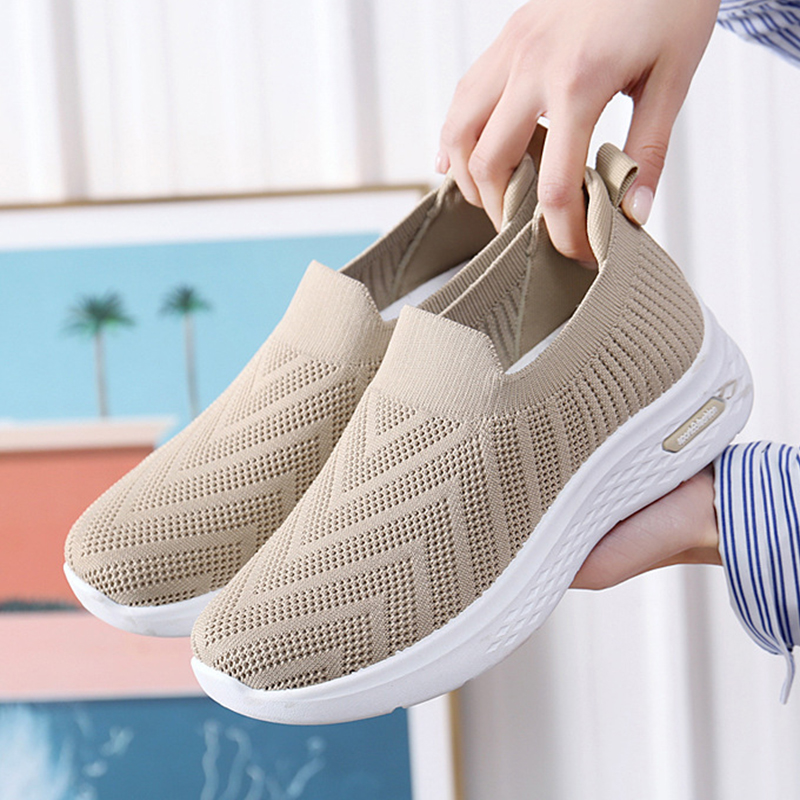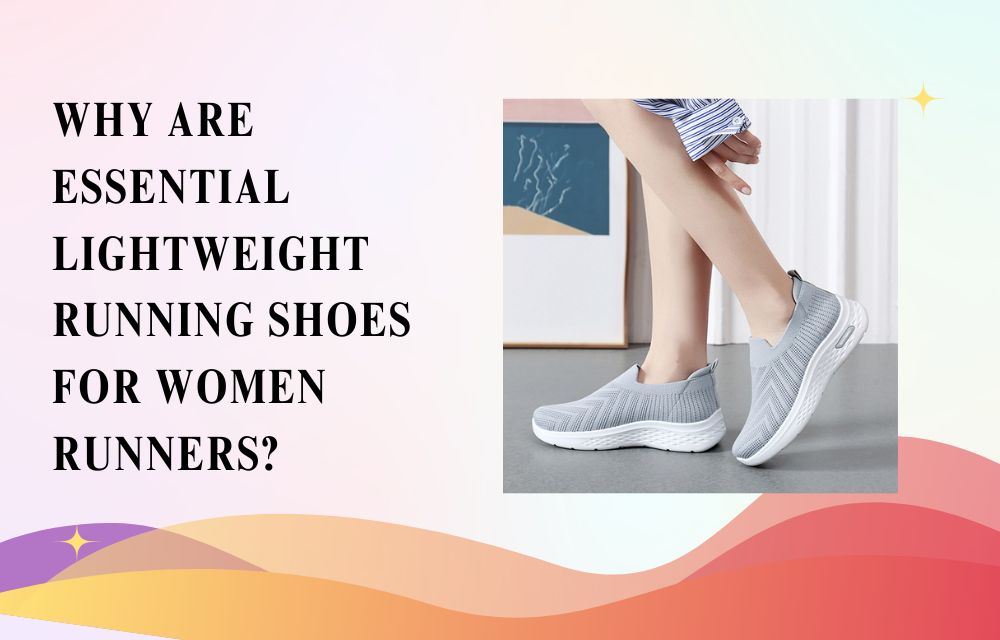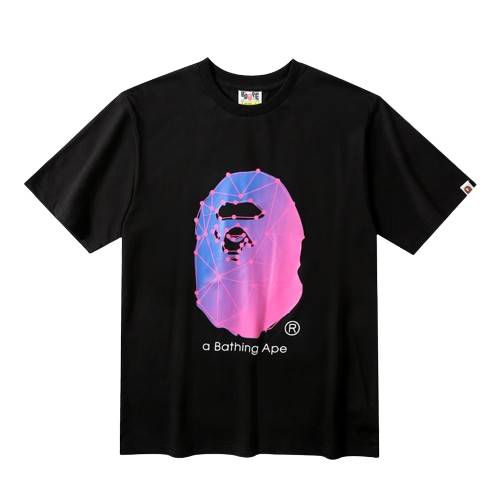For women who love to run, whether for fitness, leisure, or competition, the right pair of shoes can make a huge difference. Lightweight running shoes are becoming more popular because they provide comfort, speed, and flexibility without adding unnecessary weight. If you are a runner or planning to start running, understanding the benefits of lightweight running shoes can help you make a more informed decision. In this blog, we will explore why Lightweight Running Shoes for Women are essential for women runners, what to look for in a good pair, and how they can improve your running experience.
1. What Makes Lightweight Running Shoes Essential for Women?
Why Choose Lightweight Running Shoes?
The main reason runners opt for lightweight shoes is that they provide a feeling of freedom. Running in heavy shoes can feel sluggish, and every extra ounce of weight slows you down. Lightweight shoes are designed to make your run feel more effortless, helping you maintain better speed and agility. When you’re wearing lightweight shoes, it feels like your feet are barely touching the ground, making each stride smoother and faster.
Lightweight running shoes are also important for reducing fatigue. Running in a lighter shoe requires less energy to lift your feet, which allows you to conserve your strength over longer distances. Whether you’re running for short bursts or long runs, lighter shoes can help prevent your feet from feeling tired, and they can help you achieve better performance over time.
Benefits of Lightweight Shoes for Women
Women runners often have different needs than male runners, and finding the right shoes that meet those needs is essential. Lightweight shoes are great for women because they offer:
- Speed: Lightweight shoes are perfect for runners who want to go faster. Whether you’re sprinting, racing, or just running for fun, the reduced weight lets you move more quickly.
- Comfort: Lightweight shoes are often more breathable and flexible, which can help keep your feet cool and comfortable throughout the run.
- Reduced Fatigue: When running long distances, the lighter weight of the shoes can make a big difference. You don’t tire as easily, which is especially helpful for women who enjoy running longer distances.
Types of Lightweight Running Shoes
There are different types of lightweight shoes designed for various types of runners, including:
- Neutral Running Shoes: Best for those who have a natural running style and do not need extra support.
- Stability Shoes: Perfect for women who have mild overpronation, meaning their feet tend to roll inward while running.
- Minimalist Shoes: These shoes have very little cushioning and are ideal for runners who want to feel closer to the ground and experience a more natural running form.
Each type has its benefits, and choosing the right one depends on your running style and preferences.
2. Key Features to Look for in Lightweight Running Shoes
Cushioning
When it comes to running shoes, cushioning is essential, even in lightweight designs. However, in lightweight shoes, the cushioning is often more minimal than in traditional running shoes. The key is to find a balance between lightness and comfort. You want enough cushioning to absorb the impact of each step but not so much that the shoe becomes heavy and clunky. Many lightweight running shoes feature responsive cushioning that adapts to the shape of your foot, providing a more comfortable and natural feel.
- Responsive Cushioning: Shoes with responsive cushioning are designed to give you a soft feel without feeling too squishy. The foam used in these shoes bounces back quickly, providing energy return as you run.
- Heel-to-Toe Drop: The heel-to-toe drop refers to the height difference between the heel and the toe of the shoe. A lower drop (e.g., 4mm) encourages a more natural stride and is often found in lightweight shoes.
Breathability and Ventilation
When running, your feet can get hot and sweaty, especially during long runs or in warm weather. Breathable shoes are important because they help keep your feet cool and dry, preventing discomfort and blisters. Most lightweight running shoes are made with mesh uppers or knitted materials that allow air to flow freely, providing better ventilation.
- Mesh Uppers: These are typically found in many lightweight running shoes and offer excellent breathability. The material allows heat to escape, keeping your feet cooler during long runs.
- Perforated Materials: Some shoes feature perforations or holes in the upper, providing extra airflow and reducing moisture buildup.
Flexibility and Support
Running shoes need to be flexible, especially if they’re lightweight. The flexibility of a shoe allows your foot to move naturally with each stride, improving comfort and reducing the risk of injury. However, the shoe must also provide enough support, particularly around the arch and ankle.
- Flexibility: Look for shoes with flexible outsoles that allow your foot to bend as you run. Flex grooves or channels in the sole can help improve flexibility and make running feel more natural.
- Support: While lightweight shoes are designed to be minimalistic, they should still provide enough arch support. A shoe that offers a good fit around the arch can help prevent strain on your feet and lower legs.
Durability
Even though lightweight shoes are designed to be less bulky, they still need to be durable enough to withstand regular use. The durability of a running shoe is often determined by the materials used, particularly in the outsole (the bottom part of the shoe).
- Rubber Outsoles: Most lightweight running shoes use rubber in the outsole, as it is durable and provides good grip. Rubber is also lighter than traditional materials used in heavier shoes.
- Reinforced Areas: Some lightweight shoes have reinforced areas in high-wear zones, like the toe or heel, to ensure that the shoes last longer without adding extra weight.
Fit and Comfort
The fit of your running shoes is one of the most important factors when choosing a pair. Even the lightest shoes will be uncomfortable if they don’t fit well. You should look for shoes that feel snug but not tight, with enough room in the toe box for your toes to move naturally.
- Toe Box: The toe box should provide enough room for your toes to spread out comfortably. A cramped toe box can lead to discomfort, blisters, and other foot problems.
- Heel Fit: Your heel should fit snugly in the shoe to prevent slipping. A loose heel can cause friction and lead to blisters.
- Sock-Like Fit: Many lightweight shoes feature a sock-like fit, which hugs the foot closely and provides a seamless feel.
3. How Do Lightweight Running Shoes Help Women Runners Perform Better?
Increased Speed and Agility
Lightweight running shoes help women runners move faster by reducing the weight they have to carry with each stride. The lighter the shoe, the less effort is required to lift each foot, which can lead to faster times, especially during sprints or shorter runs. Whether you’re training for a race or just trying to improve your speed, a lightweight shoe can be an important tool.
Reduced Fatigue
When you wear lightweight shoes, you use less energy with each step. This is particularly helpful for long-distance runners, as it helps reduce fatigue and allows you to run for longer periods without feeling drained. For women runners, wearing shoes that are light and flexible can make running less tiring and more enjoyable.
Improved Comfort
Lightweight running shoes are typically designed with materials that are more breathable and flexible, which contributes to a more comfortable run. These shoes allow your feet to move naturally, reducing the risk of blisters, soreness, and other discomforts that can arise from wearing heavier shoes.
4. How to Choose the Best Lightweight Running Shoes for Women

Lightweight Running Shoes for Women
Evaluate Your Running Style
Before purchasing lightweight running shoes, it’s important to consider your running style. Do you need extra support, or do you have a natural stride? Are you planning to run long distances, or do you prefer shorter sprints? Your running needs will help you determine whether you need a more cushioned shoe or a minimalistic option.
Consider Your Foot Shape
Your foot shape and arch type are key factors in choosing the right running shoe. Some lightweight shoes provide more arch support, while others are designed for flat feet or high arches. If you have a specific foot shape or arch, make sure to find shoes that offer the support you need.
Try Before You Buy
When you find a pair of shoes you’re interested in, make sure to try them on. Walk around or jog in the store to see how they feel. Make sure the shoes fit snugly around your heel and midfoot, but leave enough room for your toes. Pay attention to any pressure points or discomfort.
5. Conclusion: The Importance of Lightweight Running Shoes for Women
In summary, lightweight running shoes are essential for women who want to improve their running performance and enjoy greater comfort. These shoes are designed to reduce fatigue, increase speed, and offer better flexibility. Whether you’re a seasoned runner or just starting out, investing in the right pair of lightweight shoes can enhance your running experience and help you achieve your fitness goals. By focusing on cushioning, breathability, flexibility, and a good fit, you can find the perfect pair of running shoes that will support you every step of the way.
Note:- To read more articles visit on picnobs.






